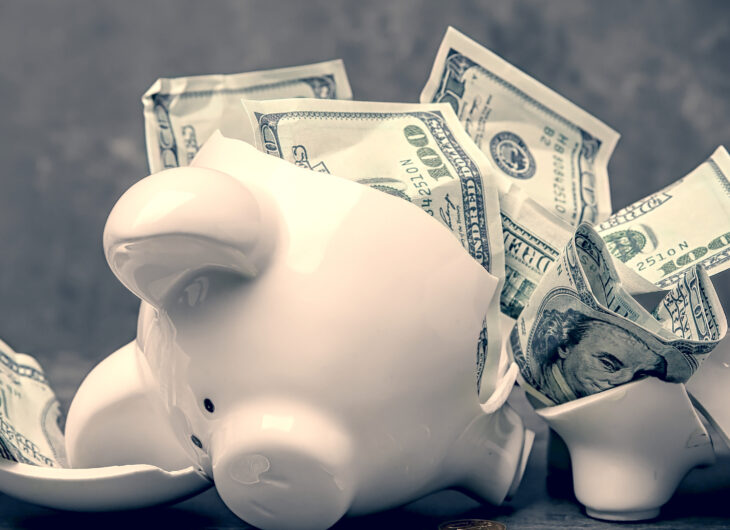The coronavirus has swept across the globe, rendering economies impotent and human health beleaguered. Millions of people are jobless, underemployed, and relying on credit cards to pay for necessities. A record number of credit cards, auto loans, and student loan delinquencies may occur in the months and years ahead. If you are considering declaring bankruptcy during this difficult time, you are not alone.
Contents
Bankruptcy by the Numbers

Image source: bierensgroup.com
Though only half a million Chapter 7 bankruptcies were filed between the end of June 2018 and that point in time in 2019, the trend is about to increase. There is a good chance more than a million people will file for Chapter 7 in the next three years, matching the total from the Great Recession between 2009 and 2012. Thankfully, bankruptcies have significantly tailed off since the market setback in 2008.
However, unemployment resulting from the pandemic is hovering around the 25% mark, meaning it is only a matter of time until bankruptcies pile up. Online platforms that assist individuals in filing for debt relief have spiked in traffic and page views since the coronavirus outbreak. According to the attorneys from scura.com, the coronavirus is set to wreak financial havoc, possibly to the extent inflicted during the Great Depression.
The Meaning of the COVID-19 CARES Act in the Context of Bankruptcy
Though the federal government response to the coronavirus pandemic can certainly be criticized, Congress deserves credit for passing the CARES Act financial assistance legislation into law in a reasonable amount of time. This relief package provides upwards of $2 trillion in coronavirus financial aid with the overarching intent of maintaining nationwide economic health in terms of financial support for everyday Americans and for corporations that comprise the majority of employers.
The CARES Act legislation implemented meaningful changes that will significantly impact those who file for bankruptcy and those who have already filed. Those who are provided with relief aid through the government amidst the pandemic are not forced to turn this money over to trustees overseeing their filing. Furthermore, the government’s financial relief will not impact the filer’s income as reported on the Chapter 7/Chapter 13 filings. This recent legislation even provides Chapter 13 filers to alter their plans if enduring hardship as a result of the virus.
The COVID-19 pandemic will possibly mitigate the debt relief process, delaying the bureaucratic processes necessary to formalize the declaration of bankruptcies. Though submitting for bankruptcy will almost certainly take longer to finalize, those declaring this formal financial destitution should still be aware of deadlines tied to the case, including the due dates of the required paperwork and filing fees.
How to Determine if You Should File for Bankruptcy

Image source: mww-llp.com
Though every individual has a personal financial and employment situation, it does not make sense to file for insolvency until the absolute rock bottom of financial poverty is reached. If the coronavirus pandemic has negatively impacted your finances, do not immediately jump to the conclusion that you should file for bankruptcy. This should be a last resort you only consider after every other option is exhausted.
Furthermore, it will take some time to complete the filing process simply because these courts are not open to traditional face-to-face interpersonal interactions amidst the pandemic. The only other option is to file by phone or possibly through a teleconference. Take some time to consider whether the federal government’s financial relief will enhance your financial situation. This influx of cash may offset some of your debt load and boost your credit.
At this moment, the average person is questioning whether he or she should wait to file for debt relief as the proceeding payments might stem the tide and set the stage for financial solvency in the months and years ahead. Your unique personal financial situation dictates the optimal approach to this quandary. When in doubt, ask the professionals at tulsabankruptcylawyers.net for help. Meet with a financial specialist or tap into his or her knowledge base. Refer to the guidance provided by a no-cost bankruptcy platform on the web. However, if you are in debt to the point that you are certain you will never be able to pay the money back, it is likely in your interest to consider one of the chapters associated with ridding your debt.
Inability to File for Bankruptcy Due to the Pandemic

Image source: csbj.com
Having the privilege to clear your debt is not free. Attorney and court fees must be paid in order to be able to file for bankruptcy officially. However, there are some free filing tools available on the web to ameliorate this financial challenge. The majority of states permit financially destitute individuals to file paperwork electronically with an attorney’s assistance.
If you resort to a free online tool to file for any chapters associated with debt relief, this paperwork must be delivered by hand or mailed. This requirement is certainly unfair as it makes filing for bankruptcy more challenging for poor individuals, yet it is the law of the land, so you must honor it. Furthermore, there is hope for change. A more debtor-friendly setup may be established in the years to come.
The moral of this story is the coronavirus pandemic causing significant financial strain to individuals as well as businesses throughout the United States and beyond. This is not a time to panic. Do not immediately file for bankruptcy until you have analyzed your financial situation in-depth with a professional’s assistance.
